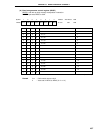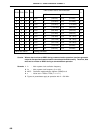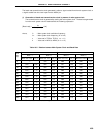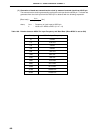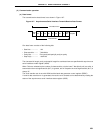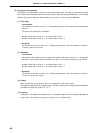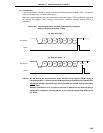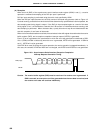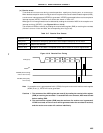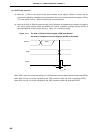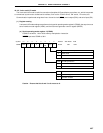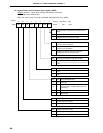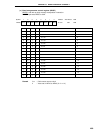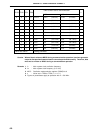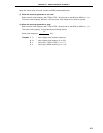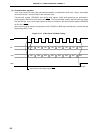
465
CHAPTER 19 SERIAL INTERFACE CHANNEL 2
(e) Receive errors
Three kinds of errors can occur during a receive operation: a parity error, framing error, or overrun error.
When the data reception result error flag is set in the asynchronous serial interface status register (ASIS),
a receive error interrupt request (INTSER) is generated. INTSER is generated before receive completion
interrupt request (INTSR). Receive error causes are shown in Table 19-7.
What type of error was generated can be detected by reading the contents of ASIS in the reception error
interrupt servicing (INTSER). (see Figures 19-9 and 19-10).
The contents of ASIS are reset (0) by reading the receive buffer register (RXB) or receiving the next data
(if there is an error in the next data, the corresponding error flag is set).
Table 19-7. Receive Error Causes
Receive Errors Cause
Parity error Transmission-time parity specification and reception data parity do not match
Framing error Stop bit not detected
Overrun error Reception of next data is completed before data is read from receive register buffer
Figure 19-10. Receive Error Timing
Note If a reception error is generated while bit 1 (ISRM) of asynchronous serial interface mode register
(ASIM) is set (1), INTSR will not be generated.
Cautions 1. The contents of the ASIS register are reset (0) by reading the receive buffer register
(RXB) or receiving the next data. To ascertain the error contents, ASIS must be read
before reading RXB.
2. The receive buffer register (RXB) must be read even if a receive error is generated.
If RXB is not read, an overrun error will be generated when the next data is received,
and the receive error state will continue indefinitely.
D1 D2 D6 D7 ParityD0RxD (Input)
STOP
START
INTSER (when framing/
overrun error occurs)
INTSER (when parity
error occurs)
INTSR
Note



